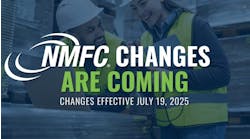Some faint praise and a lot of scorn are being heaped upon President Obama’s 2014 federal budget proposal by the transportation industry, with some groups supporting his request for $50 billion to repair highways, bridges, transit systems and airports and others condemning funding cuts to other programs, such as the Diesel Emissions Reduction Act (DERA).
Yet others, such as the American Association of State Highway and Transportation Officials (AASHTO) had hoped the White House would take a stab at trying to create a “long term” solution for funding transportation needs; something the President’s budget proposal touches on only obliquely in a desire to create a National Infrastructure Bank to bring together public and private capital for “important” infrastructure projects.
"We remain supportive of proposals like President Obama’s that would increase investment in transportation infrastructure, especially those that address the nation’s growing backlog of preservation and maintenance needs,” said Bud Wright, AASHTO ‘s executive director.
“[Yet] AASHTO and its member states remain convinced the principal challenge will be to identify a long-term, sustainable revenue source for transportation investments,” he stressed.
The American Trucking Associations (ATA) takes an even harder line against President Obama's budget proposal, with both its chief executive and chairman saying it fails to provide adequate detail and direction for how the country should pay for its infrastructure needs.
"The backbone of our economy is the asphalt, steel and concrete of our roads and bridges and proposals to fund those roads should be equally concrete," explained Bill Graves, ATA’s president and CEO. “For five years, we've waited for President Obama to clearly state how we should pay for these critical needs and, I'm sad to say, we continue to get lip service about the importance of roads and bridges with no real roadmap to real funding solutions."
"A safe and efficient network of highways is critical not just to my business, but to all businesses in this country," added ATA Chairman Mike Card, who is also president of TL carrier Combined Transport. "Trucking is willing to step up and pay more to ensure this country has the world-class highways it deserves, but until the President and congressional leaders advance a plan with real funding solutions, I worry about the continued deterioration of one of our nation's most critical competitive advantages."
President Obama noted in his speech unveiling the budget yesterday that “to make America a magnet for good jobs” he proposes to invest in new manufacturing “hubs” to create global centers of high-tech jobs while placing some $50 billion worth of funds in his Rebuild America Partnership to attract private investment to help rebuild roads, bridges and schools.
Yet some groups, such as the U.S. Conference of Mayors, said that several proposals within the President Obama’s budget could actually retard the very infrastructure investments he seeks to generate.
"The nation's mayors believe the President's budget proposal today moves us toward a balanced approach to achieve deficit reduction while promoting growth and investing in national priorities … and we are pleased that there is increased funding … to immediately repair highway, transit and other transportation facilities and [fund] additional freight and passenger rail investments [plus],” noted Michael Nutter, Philadelphia’s mayor and the group’s president.
"However, we are disappointed that the budget cuts Community Development Block Grant funding, which is the largest funding stream of federal dollars to cities and municipalities used by local governments to leverage additional investment,” he stressed.
"We are [also] extremely disappointed that the budget included a provision that severely limits the tax exemption on municipal bonds that finance the nation's schools, hospitals, roads, transit, water and other critical infrastructure,” Nutter added. “The proposal would result in billions of dollars in increased interest annually for communities all across the country.”
He pointed out that in meetings with the White House, the group continually expressed strong opposition to this proposed tax exemption limitation and reiterated that tax-exempt municipal bonds are essential to providing services for middle-class Americans.
"We support the President's new proposals on infrastructure, but they should not come at the expense of the primary tool for infrastructure financing and job creation,” Nutter said. “[But] we do not believe that the Administration will take actions that could damage municipal financing in our country.”
Another part of the President’s budget drawing transportation ire is the proposed 70% reduction in funding for the Diesel Emissions Reduction Act (DERA); an effort Allen Schaeffer, executive director of the Diesel Technology Forum (DTF) said would “nearly decimate one of the nation’s most successful clean air programs.”
According to the White House’s 2014 budget proposal, DERA funding would fall from $20 million in FY 2013 to $6 million in 2014. Originally authorized as part of the Energy Policy Act of 2005, DERA provides funds to upgrade older diesel engines in order to reduce their emission production levels.
Schaeffer said DERA provides “consistently” high environmental, fuel-saving and clean air value, with the Environmental Protection Agency (EPA) estimating that this pool of federal funds provides $13 in benefits for every $1 dollar invested.
“Ironically, just as state and local clean air officials develop plans to help meet President Obama’s new more stringent clean air standards, this proposed budget virtually eliminates a valuable and proven means of emissions reductions to many non-attainment areas,” he added. “At the same time proven clean air programs here in the U.S. are being slashed by 70%, the President is increasing direct funding to other countries for climate and clean energy programs by over 30%.”
That’s just one example of why ATA’s Graves believes the White House must craft a longer-term and sustainable funding strategy to address the many diverse needs of the U.S. transportation industry.
"Accounting gimmicks and budget tricks only get you so far," Graves said. "Sooner or later you need to take a hard look at the situation and decide that we're going to invest in these things or we're not and if we are that we need to generate more revenue than we do now. It's time to show us the money and where you intend to get it from. Simply letting states borrow more is no substitute for increased federal investment."



